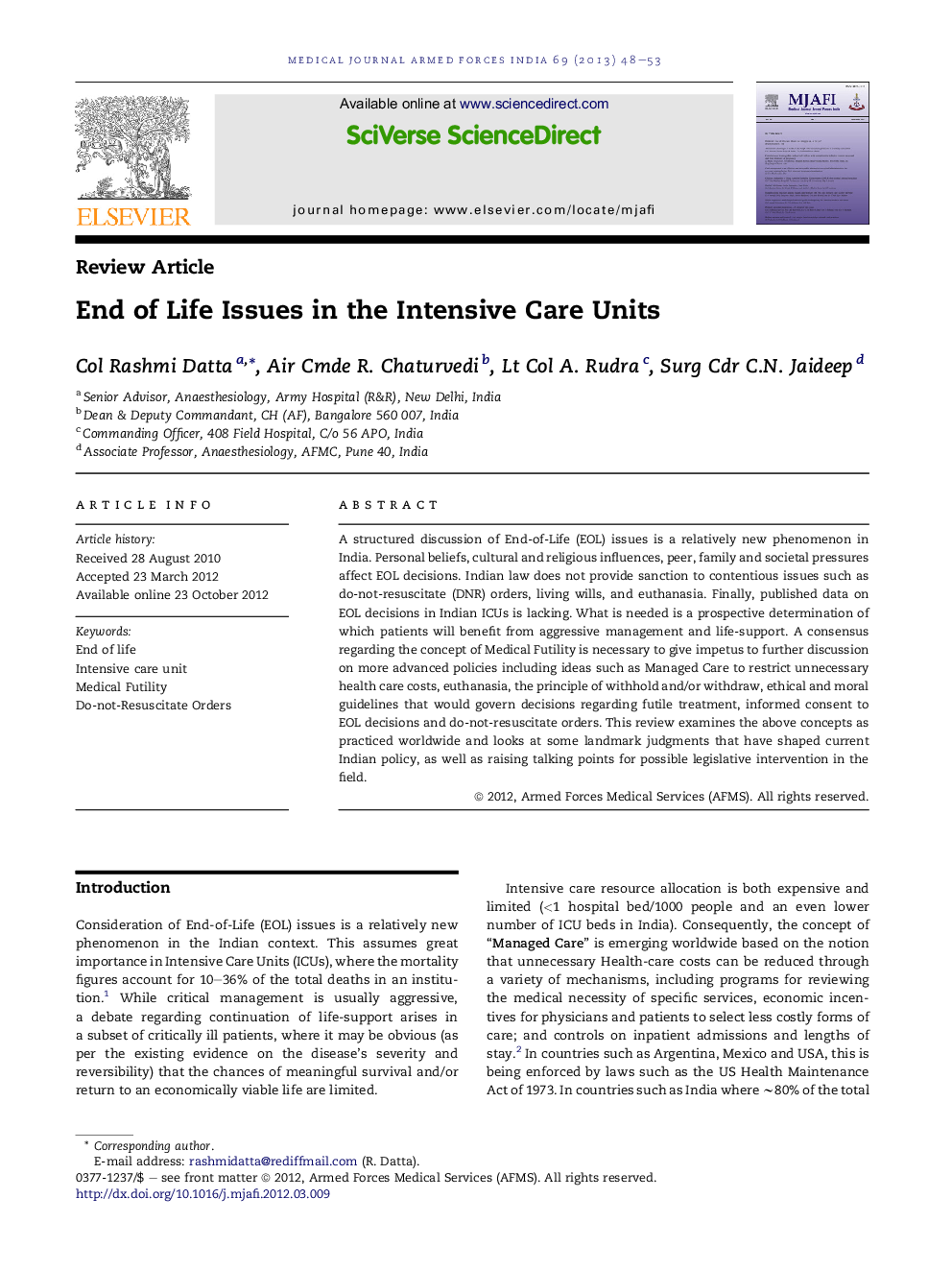| Article ID | Journal | Published Year | Pages | File Type |
|---|---|---|---|---|
| 3161552 | Medical Journal Armed Forces India | 2013 | 6 Pages |
A structured discussion of End-of-Life (EOL) issues is a relatively new phenomenon in India. Personal beliefs, cultural and religious influences, peer, family and societal pressures affect EOL decisions. Indian law does not provide sanction to contentious issues such as do-not-resuscitate (DNR) orders, living wills, and euthanasia. Finally, published data on EOL decisions in Indian ICUs is lacking. What is needed is a prospective determination of which patients will benefit from aggressive management and life-support. A consensus regarding the concept of Medical Futility is necessary to give impetus to further discussion on more advanced policies including ideas such as Managed Care to restrict unnecessary health care costs, euthanasia, the principle of withhold and/or withdraw, ethical and moral guidelines that would govern decisions regarding futile treatment, informed consent to EOL decisions and do-not-resuscitate orders. This review examines the above concepts as practiced worldwide and looks at some landmark judgments that have shaped current Indian policy, as well as raising talking points for possible legislative intervention in the field.
